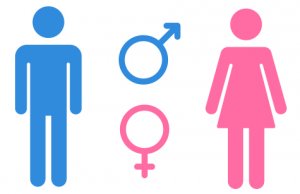Substance Use Disorders and Treatment: Men vs. Women
How different are men and women when it comes to substance use disorders and addiction treatment? Which gender uses more illicit substances? Are men or women more likely to die of illegal or prescription drug overdose? Which gender is more susceptible to relapse?
Insights from the Substance Use in Women Research Report—available from the National Institute on Drug Abuse (NIDA)—answers these questions and more. While the study tends to highlight stats involving women, the context logically offers comparative data about men. Here’s quick dive into some of the more intriguing factoids.
Substance Use Gender Differences
NIDA data breaks down its research report according to illegal drugs, prescription drugs, and other substances. Here are some key insights that compare substance use facts for men versus women.
Overdose, Disorders, and Relapse
- Overdose deaths. Men are more likely to visit an emergency department and to die of overdose due to use of illegal drugs and misuse of prescription drugs than women.1
- Substance use disorders. The risk of developing a substance use disorder is basically the same between men and women.1
- Cravings and relapse. Women seem more susceptible to craving and relapse.1
Substance-Specific Insights
- Alcohol. Within most age groups, men have higher rates of alcohol use and binge drinking. The exception is the 12 to 20 age range, when girls are more likely to do so than their male counterparts. Women are also more likely to suffer from alcohol-related damage than men, regardless of the duration of use. In fact, death rates are 50 to 100% higher for women with alcohol use disorders than their counterparts.1
- Prescription Drugs.
- Opioids. While fewer women than men die from prescription opioid overdoses, the gap in this statistic appears to be closing, as death rates recently increased more rapidly for women than for men. The women’s age group most likely to die from a prescription opioid overdose is: ages 45 to 54. Men are less likely to misuse prescription opioids to self-treat for problems such as stress and anxiety, and they’re less likely to take them without a prescription to cope with pain.1
- Sleep Aids and Anti-Anxiety Meds. Women are more at risk for insomnia and anxiety than men, and they’re more likely to die from overdoses related to medications prescribed for mental health conditions (e.g., antidepressants).1
- Stimulants.
- Heroin. Women are less likely to inject heroin than men, and they tend to use smaller amounts and for a shorter duration of time. However, women who inject heroin are more likely than their counterparts to also use a prescription drug. This dangerous combination may be why one study showed women were more at risk of dying from a heroin overdose during the first few years of injection use.1
- Cocaine. Compared to men, women appear to start using cocaine sooner and in larger amounts. However, women who use cocaine are less likely to exhibit blood flow abnormalities in the frontal regions of the brain.1
- Methamphetamine. Women tend to start methamphetamine use earlier than men and are more dependent on the substance. Women who use methamphetamine report unique reasons for use in comparison to men, e.g., weight loss along with increasing energy and decreasing exhaustion associated with child care, family, work, home care, etc.1
- 3,4-methylenedioxymethamphetamine (MDMA/Ecstasy). When it comes to MDMA effects, men show higher MDMA-induced blood pressure, but women have stronger hallucinatory effects.1
- Marijuana. Although fewer women than men use marijuana, the substance seems to impair spatial memory more in women than men. Regardless of gender, marijuana use disorder is associated with an increased risk of at least one other mental health condition. However, women with the disorder tend to have more panic attacks and anxiety disorders. Meanwhile, men with the disorder have higher rates of other substance use issues as well as antisocial personality disorders. Additionally, women tend to develop a marijuana use disorder more quickly after first use, but the disorder’s severity is usually worse for men.
Treatment for Substance Use Disorders: Men vs. Women
When it comes to gender comparisons, NIDA presents several differences related to treatment and disease progression:1,2
- Overall Treatment. While there are more men in treatment than women, the rate of women seeking treatment has increased for some substances such as heroin.
- Barriers. Research suggests that women have unique barriers to treatment, including lack of childcare, family obligations, etc.
- Progression. Compared to men, women generally show a quicker progression from substance use initiation to the development of dependence. Additionally, they usually enter treatment with more severe psychological medical, behavioral, and/or social issues.
- Central Nervous System Depressants. Women are more likely than men to seek treatment for misuse of CNS depressants substances, which can include sedatives used to treat anxiety, sleep disorders, seizures, etc.
- Pregnancy. Women who have young children or are pregnant often drop out of treatment early to care for their children or due to fears that they will lose custody of them.
If you or someone you love is struggling with substance misuse, American Addiction Centers can help. With multiple facilities throughout the United States, all of which offer evidence-based care in accredited settings, AAC can help you or a loved one take the first steps toward recovery today. Reach out via or sign up for text support.
